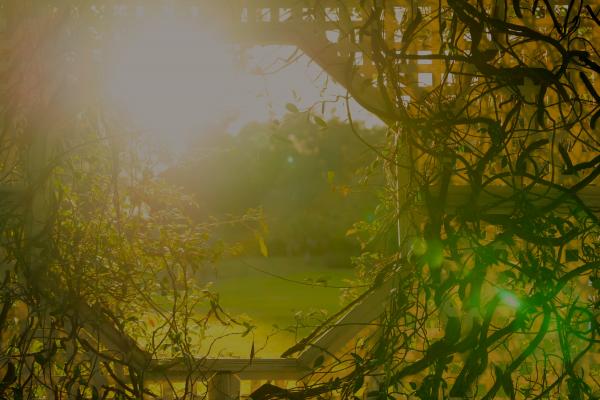In July, our church did a series we called Creating Healthy Boundaries. We are a cause-oriented, full-scheduled, socially-aware group of folks who like to say yes to things but often find it difficult to say no. And sometimes in our busyness we have a tendency to simply do whatever’s right in front of us.
But as followers of Jesus, we are called not only to do good things but to mature into godly people — and maturity involves learning how to live emotionally, relationally, and spiritually healthy lives. In other words, learning “how to say no and when to say yes,” as Henry Cloud and John Townsend write in their classic book Boundaries.
Jesus said, “I have come that they may have life, and have it to the full” (John 10:10). But a filled life is not the same as a fulfilled life; and doing good works does not necessarily correlate to growth in character, or maturity, or relationship with God and love for others.
The purpose of creating healthy boundaries is not simply to get really good at saying no, or create more convenience. The purpose of boundaries is so that we might experience and enjoy more of God in more of our lives.
The prevailing narrative of our time is one of not-enough, lack, insufficiency — or even self-sufficiency. But that’s not what God says to us or about us. As pastor and author Jo Saxton writes, “Contrary to the many mantras of our day, our identity is not found deep within us: it's given.”
Identity is given by God, our Creator, the One who made us in his image, the One who knit us together in our mother’s womb, the One who knows what’s best for us.
If we let him, God’s words and God’s truths can form healthy boundaries to keep the good in and to shut the bad out of our souls, to keep the truth in and to shut the lies out.
Grape farmers will do three things to ensure the fruitfulness and longevity of their vineyards:
1. Build trellises so that the vines won’t become entangled and limit the growth of fruit;
2. Set up stakes in the soil so that the vines won’t be blown away; and
3. Prune the vines—cutting off not only dead and dying branches, but also even sometimes good, thriving, fruit-bearing limbs, so that there’s enough sunlight and air circulation for all of the vines.
When a vine has been nurtured, given the structure of a trellis and the stability of a stake, and gone through the sometimes painful care of pruning, it flourishes and remains healthy. When a vine has not been nurtured, it often collapses under its own weight or becomes entangled and overgrown.
Because of this, it’s important for boundary-setting to begin not with externals or with symptoms but with identity — because who you are determines how you live, and what kind of boundaries you’re willing and able to put up. In short, we need to know who we are and whose we are.
As St. Augustine wrote, “You have made us for yourself, O Lord, and our hearts are restless until they find their rest in you.”
More of God in more of our lives is what gives us joy and peace in the midst of challenges and troubles. It’s what spurs us to be the change we want to see in the world, to do justice by acting justly. It’s what motivates us to seek the peace and prosperity of our city. It’s what empowers us to truly love our enemies.
So maybe you need to put a stake in the ground. Maybe you look at your life and, if you’re being honest with yourself, you’ve been drifting aimlessly on the currents of whatever happens to be in front of you at the moment, blown this way and that by winds of unfulfilled desires and bad relationships and uncertainty of calling.
Maybe you’ve been struggling to figure out who you are but you’ve been trying to do it without reference towhose you are, and so you find yourself wandering in circles. Maybe you need to say, “I’m a follower of Jesus of Nazareth. I’m committing — or recommitting — my life to his cause, to his kingdom, to his example. That’s going to be my primary identity, the identity that trumps all others.”
Maybe you need to do some pruning — or allow God to do some pruning. Maybe there are things in your life that are bad and dead and need to be cut out: that addiction to pornography that you just can’t shake but is killing your perspective on relationships and love; that habit where your only response to things going wrong is to whine and blame others; that practice of keeping others at arm’s length so that you never have to risk being vulnerable.
Or maybe there are things in your life that are good but need to be cut because that’s not the way God is leading you. Maybe there’s a pastime that you enjoy but it’s taking time and energy away from the core of your calling. Or you’re trying to invest in so many people and friendships that you’re actually not investing in any of them. Maybe you’re so focused on experiencing life that you’re failing to focus on God in your life. This aspect is often harder to discern but can have an even greater impact on your ability to experience the gloriousness of life God wants for you and on what God can do through you.
Or maybe you need to craft a trellis, a structure for growth. Christians and Christian communities around the world and for hundreds of years have implemented what’s called a “rule of life” for themselves, creating healthy boundaries in an integrated way. A rule of life takes you from the theoretical “I want to follow Jesus” to “This is how I want to do it,” starting from the goal and vision of the God-filled life and working back to tangible, practical steps.
For example, if I’m called to be more loving — and I realize that being tired is one thing that gets in the way of being loving, because I’m more impatient and more irritable when I’m tired — how can I plan to get more sleep?
Ask yourself, "If I want to, as Paul exhorts, do everything — word or deed — in the name of the Lord Jesus Christ, what would it look like to create more moments in which I’m aware of God’s presence?"
God desires to make our lives so full of his love and glory that it might be more fully known and experienced by us and through us in our world. What are you going to do about it?
Got something to say about what you're reading? We value your feedback!

